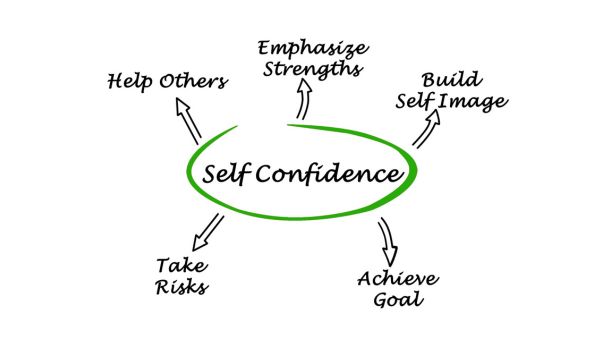How To Be More Confident As An Introvert

In a world that often celebrates extroversion, introverts can sometimes feel pressured to conform. However, confidence isn't exclusive to any personality type. Learning to cultivate self-assurance is a skill that can be developed by anyone, including those who thrive in quieter environments.
This article explores practical strategies for introverts to enhance their confidence, leveraging their natural strengths to navigate social and professional settings effectively.
Understanding Introversion
Introversion isn't synonymous with shyness or social anxiety, according to Dr. Laurie Helgoe, author of "Introvert Power: Why Your Inner Life Is Your Hidden Strength." Instead, it’s a preference for less stimulating environments and a tendency to recharge through solitude.
Introverts often possess valuable qualities like deep thinking, strong listening skills, and thoughtful communication, which can be significant assets in building confidence.
Strategies for Building Confidence
Embrace Your Strengths
Recognize and leverage your natural strengths. Introverts often excel at tasks that require focus, analysis, and independent work.
Identify what you're good at and actively seek opportunities to use those skills. Successfully applying your strengths will naturally boost your self-esteem.
Prepare and Practice
Preparation is key to confidence. If you have an upcoming presentation or social event, take the time to plan what you want to say and how you want to present yourself.
Practice your delivery in front of a mirror or with a trusted friend to feel more comfortable and prepared.
Set Realistic Goals
Avoid overwhelming yourself with unrealistic expectations. Start with small, achievable goals that will help you build momentum and confidence over time.
For example, aim to participate in one conversation during a meeting or reach out to one new connection each week.
Prioritize Self-Care
Introverts often need more downtime to recharge than extroverts. Make self-care a priority by scheduling regular periods of solitude and relaxation.
Engage in activities that you find enjoyable and rejuvenating, such as reading, spending time in nature, or pursuing a hobby.
Challenge Negative Thoughts
Negative self-talk can erode confidence. Be aware of your inner critic and actively challenge negative thoughts.
Replace self-deprecating thoughts with positive affirmations and focus on your accomplishments.
Focus on Your Values
Connecting with your personal values can provide a strong foundation for self-assurance. When you live in alignment with your values, you feel more authentic and confident in your choices.
Take time to reflect on what is truly important to you and make decisions that reflect those values.
Seek Support
Don't be afraid to seek support from friends, family, or a therapist. Talking about your challenges and feelings can help you gain perspective and develop coping strategies.
Building a strong support system can provide you with encouragement and validation when you need it most.
Impact and Significance
Cultivating confidence as an introvert can have a profound impact on various aspects of life. It can lead to improved communication skills, stronger relationships, and increased career opportunities.
By embracing their strengths and implementing these strategies, introverts can thrive in a world that often values extroversion.
Conclusion
Confidence is not a trait reserved for extroverts. By understanding their unique strengths, preparing for challenges, and prioritizing self-care, introverts can build their self-assurance and achieve their goals.
Embrace your introverted nature and remember that your quiet strength is a valuable asset.


















